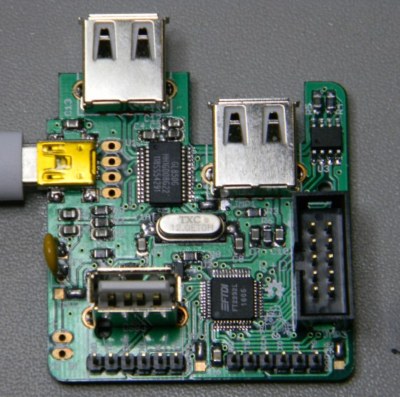
Openwrt Usb Serial Ftdi
Feb 25, 2013 opkg install kmod-usb-serial kmod-usb-serial-ftdi. Programma power trans v10. There is no apt-get in openWRT. Also, by using firmware from a third party, you have no idea if it is current or even correct. Everything you need is at openwrt.org.
I have Openwrt router with Arduino connected via USB FTDI adapter. Serial port is /dev/ttyUSB0 Arduino code prints some data: First part of data printed with delay via command print(), for example: Serial.begin(9600); Serial.print(var1); delay(1000); Serial.print(var2); delay(1000); Serial.print(var3); delay(1000); And second part printed with println() command: Serial.println('); Serial.println(var4); Serial.println(var5); Serial.println(var6); So when I open Serial port in terminal I can see something like this: 1 then timeout in 1 sec, then 1 2 next timeout. And then 1 2 3 last timeout and 1 2 3 4 5 6 It works in Terminal program and in console in OpenWRT, for example screen /dev/ttyUSB0 I need make a Lua script that will read Serial port and print the data in the same way. I have a simple script, but it doesn't work as expected. Rserial=io.open('/dev/ttyUSB0','r') while true do chain = nil while chain==nil do chain=rserial:read(); print(chain) end end it shows all data at once. It doesn't show first 3 vars one by one with delays. Seems it is because of rserial:read() - it will read until it receives a newline character.
It stated in similar question: I tried to run this command as was advised there: stty -F /dev/ttyUSB0 -icanon but it doesn't help and I don't understand why. Is it the way to fix this behavior via stty? Or I definitely need to use another Serial libs for Lua script? All of these libs seems pretty outdated for now and I don't want to use outdated stuff. From the: When called without formats, it uses a default format that reads the next line (see below). A new line is anything in the buffer until the next newline character. So as long as you don't send a newline character Lua will wait one as it has been told by calling read() Once a newline character is received you will be prompted any other character in that line.
Terminal programs usually update every byte to show what they receive in 'real-time'. So if you want to have the same behaviour you may not use read() without any arguments. Use read(1) to read every single byte without waiting for anything else.
P1-OpenWrt Connect Smart Meter's P1 to an OpenWrt OpenWrt setup for FTDI USB device: opkg update opkg install kmod-usb-ohci opkg install kmod-usb2 opkg install kmod-usb-serial opkg install kmod-usb-serial-ftdi modprobe ftdi_sio modprobe usbserial Check: root@OpenWrt:~# lsmod grep ftdi ftdi_sio 27856 1 usbcore 109781 7 ftdi_sio usbserial 18407 4 ftdi_sio Connect the FTDI USB device to the router's USB port root@OpenWrt:~# lsusb Bus 001 Device 002: ID 05e3:0608 Genesys Logic, Inc.